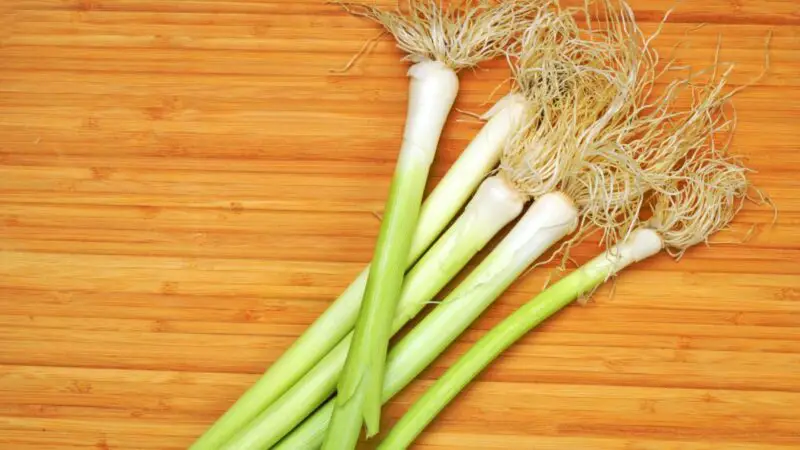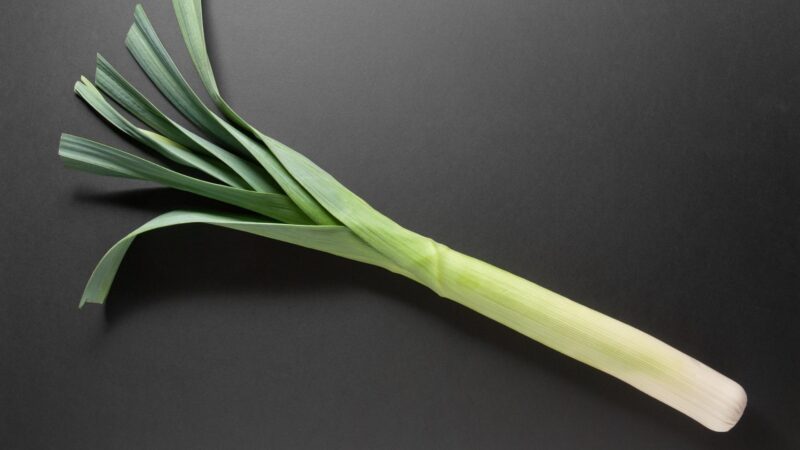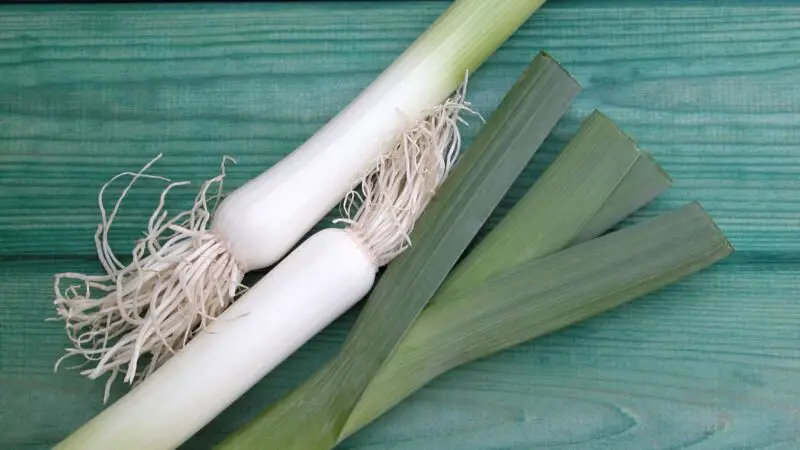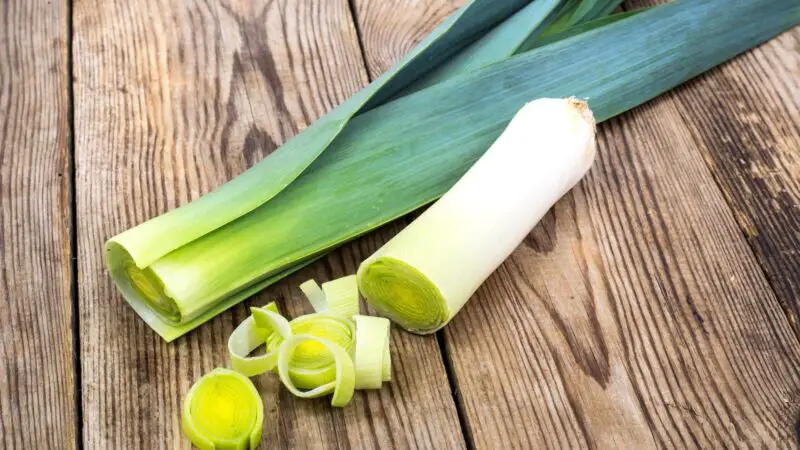Leeks are plants or rather vegetables that are closely related to onions. They have leaves that overlap and they are eaten together with the stem and stalk.
Guinea pigs cannot eat leeks. Leeks are fresh vegetables that have an excellent crunchy taste which your guinea pig will enjoy easily but it is not good for them to eat it.
In this article, you can learn the benefits, nutrients, risks and quick facts on leeks that you need to know.
Table of Content
Are Leeks Good for Guinea Pigs? | Health Benefits

As much as leeks can only be used in limited proportions and are in the end not recommended for the guinea pig diet, they sure have some advantages that are good for the guinea pigs. The following are some benefits of the leeks:
- They are essential for bone health. Vitamin K found in leeks has some significant advantage when it comes to boosting bone health.
- Leeks help in maintaining cardiovascular health. The importance of the heart cannot be overemphasized as it is an integral part of the body. Leeks have shown the presence of folate, which can prevent and reduce cardiovascular-related diseases.
- It reduces inflammation often brought about by diseases, infections or injuries. When it is not handled correctly, it can become chronic and thus, cause further complications for your little pet.
- Boosts digestion process. The presence of dietary fiber in leeks enables your guinea pig to have a smooth digestive process. Dietary fiber also acts as a filler to prevent overeating, which in the long run reduces the number of calories taken into the cavy’s body. In addition to all that, fiber also helps to reduce the chances of constipation and other stomach related issues.
- It may aid in weight loss. Although this is yet to be confirmed fully, leeks are said to have the ability to foster weight loss and control in guinea pigs. First, they achieve this by acting as a filler food, meaning that your guinea pig won’t overeat after ingesting leeks. This reduces the number of calories taken into the body thus controlling weight. The other reason is they are low in calories and have little to no fat. Since they act as an appetite suppressant, you need to give them to your pet only a few times to avoid malnutrition.
- It improves sight and vision. Lutein and zeaxanthin present in leeks are known nutrients that help with a view and image processing in our brains. These compounds prevent any harmful elements that can affect the eyes and destroy vision.
- Regulates the level of cholesterol in the body. Cholesterol is a toxic compound found in the body and it can have severe effects on the heart if not taken care of.
- Helps in the elimination of free radicals in the body. Free radicals occur naturally due to metabolism in the guinea pig’s body. They are harmful and can cause complications in the body, and that is why they need to be removed frequently.
Nutrition Facts of Leeks

Leeks are relatively nutritious and can provide your guinea pig with sufficient nutrients it needs for survival. The following are some of the nutrients present in the green:
- Vitamin K – This vitamin is vital to bone health in the guinea pig’s body.
- Vitamin C – Although this vitamin is found in leeks, it is present in meagre amounts which may not benefit your pet.
- Vitamin A – This vitamin is essential in maintaining proper sight aside from boosting the immune system of your pet.
- Dietary fiber – Fibre has a lot of roles to play in the life of a guinea pig as seen above.
Are Leeks Bad for Guinea Pigs? | Possible Risks

These are the reasons why leeks are not good for your guinea pig:
- These greens have sulfides, which may cause harm to your guinea pig when consumed in large amounts. Although the concentration may vary from one leek to the other, it is still a huge risk.
- Leeks can cause your guinea pig to bloat and even cause diarrhea. As much as the plant has dietary fiber, which is known for aiding digestive processes, it is equally dangerous in the sense of causing these complications.
- Leeks may cause an allergic reaction in your pet. Nausea/vomiting, diarrhea, and itching are common signs of allergic reactions.
Quick Facts on Leeks

You probably know a lot about leeks but here are some interesting facts about them:
- The plant has a lifecycle that goes for two years.
- Leek had high popularity back in the middle ages where girls slept with it under their pillows to get a glimpse of their future husbands.
- Emperor Nero, Roman, believed that leeks could boost singing abilities.
- Leeks were cultivated by ancient Egyptians.
- The plant propagates through the means of seeds.
List of Sources
Caring for Your Pet Guinea Pig
Vitamin C Requirements of the Guinea-Pig
Nutrient Requirements of Laboratory Animals: Fourth Revised Edition
The Effects of Diet on Anatomy, Physiology and Health in the Guinea Pig
